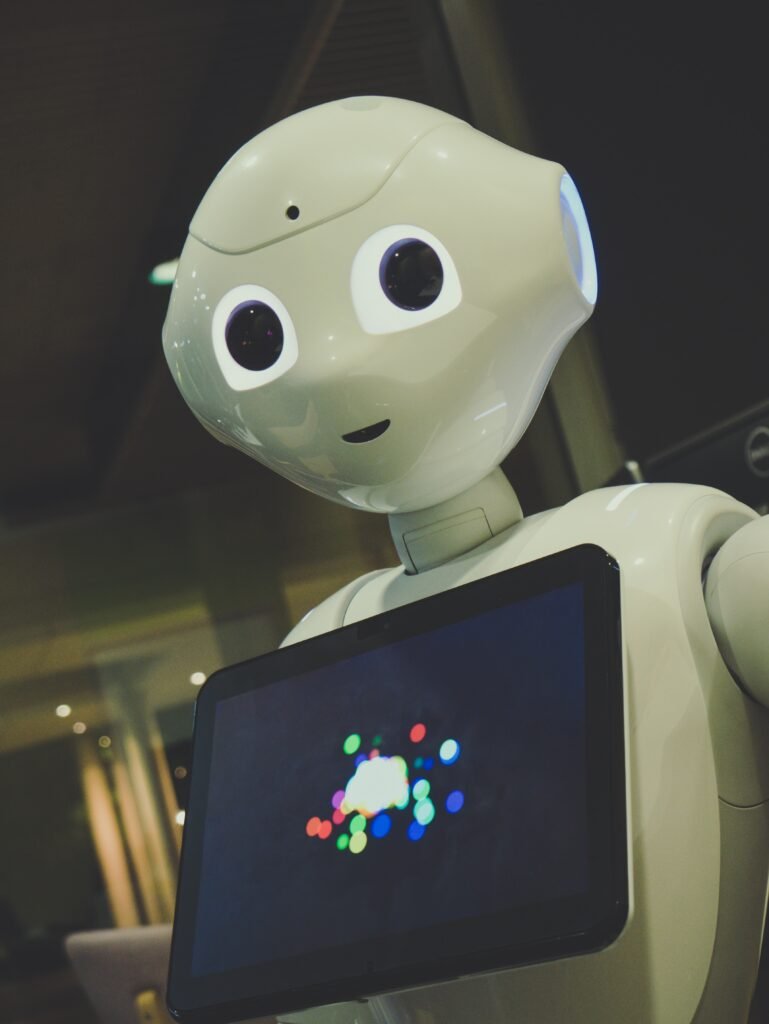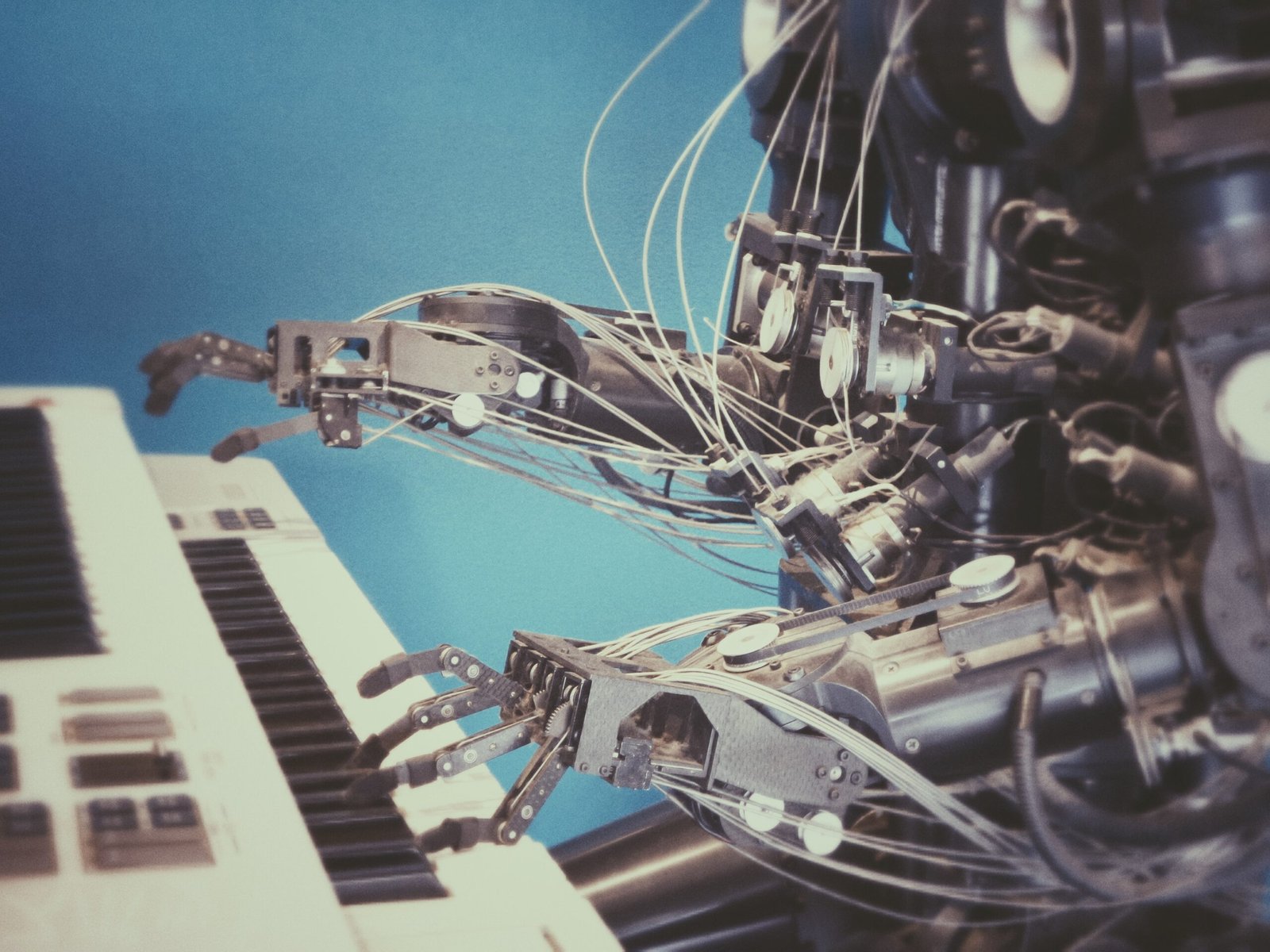In the beginning:
The fields of computer science and engineering that revolve around artificial intelligence (AI) are concerned with the creation of intelligent computers that are able to carry out activities that would normally need human cognition. These activities include learning, problem-solving, decision-making, and natural language processing. There are currently various industries that have begun to incorporate artificial intelligence technology. These areas include healthcare, banking, transportation, and entertainment. It is anticipated that AI technology will play a big role in determining the future of both technology and society.

The development of computer systems that are capable of doing activities that would ordinarily require human intellect, such as visual perception, speech recognition, decision-making, and natural language processing, is what is referred to as artificial intelligence (AI). Artificial intelligence (AI) is a topic that is expanding at a rapid rate and has applications in a variety of areas, including healthcare, finance, transportation, and entertainment.
Varieties
It is possible to divide artificial intelligence into two primary categories: narrow or weak AI and general or strong AI. In contrast to general or strong artificial intelligence, which attempts to construct intelligent computers that are capable of doing any intellectual work that a human being is capable of, narrow or weak AI is designed to accomplish certain tasks.
Machine learning, deep learning, neural networks, natural language processing, computer vision, and robotics are some of the methods that are utilised in artificial intelligence (AI). Deep learning is a subfield of machine learning that use artificial neural networks to learn from vast volumes of data. Machine learning is a subfield of artificial intelligence that includes training computers to recognise patterns in data. Deep learning is a classification of machine learning.
There are a number of industries that might be revolutionised by artificial intelligence (AI), but it also poses ethical and societal problems, such as the displacement of jobs, the possibility of bias in decision-making, and concerns around privacy. In light of this, there is a requirement for the development and deployment of AI that is responsible and ethical.
The Development of Artificial Intelligence’s Past:
Middle of the 20th century is where artificial intelligence (AI) may be traced back to. It was around this time that computer scientists initially started investigating the idea of machine intelligence. John McCarthy, Marvin Minsky, Nathaniel Rochester, and Claude Shannon are the individuals responsible for organising the Dartmouth Conference in the year 1956. Which is generally regarded as the place where current artificial intelligence research was first conducted. The field of artificial intelligence (AI) has seen substantial advancements, with notable milestones including the creation of techniques such as neural networks, machine learning algorithms, and expert systems.
Classifications of Artificial Intelligence:
In a broad sense, artificial intelligence may be divided into two categories: narrow AI and general AI. AI that is narrow is sometimes referred to as weak AI. The term refers to artificial intelligence systems that are designed to carry out certain tasks inside a specified area. Voice assistants such as Siri and Alexa, chatbots, recommendation systems, and picture recognition systems are all examples of limited artificial intelligence and its applications. A general artificial intelligence (AI) system is one that is capable of doing any intellectual job that a human being is capable of. This type of AI is also known as strong AI or artificial general intelligence (AGI). Artificial general intelligence (AGI) is still primarily theoretical and has not yet been created.
Utilisations of Artificial Intelligence That Include:
Applications of this technology may be found in a wide variety of fields and businesses, such as healthcare, banking, transportation, manufacturing, and entertainment, among others included. It is possible to enhance patient outcomes in the healthcare industry by utilising predictive analytics, illness detection, and medication discovery capabilities. Fraud detection, risk assessment, and investment decision-making are all areas of use for in the financial sector. It is utilised in the transportation sector for the purpose of driverless cars, traffic control, and the optimisation of logistics. Artificial intelligence is utilised in the manufacturing industry for quality control, supply chain optimisation, and predictive maintenance. Regarding the entertainment industry, the production of content, recommendation systems, and the customisation of advertising.
There are a large variety of applications that may make use of artificial intelligence, including but not limited to virtual assistants, self-driving cars, picture and speech recognition, fraud detection, medical diagnostics, recommendation systems, and several other applications. The capacity of artificial intelligence to analyse and interpret large volumes of data, recognise patterns, and make predictions is what makes these applications viable.
Processes that analyse natural language
The field of artificial intelligence (AI) includes Natural Language Processing (NLP), which is an essential component that enables robots to comprehend and process human language. Techniques such as machine translation, sentiment analysis, and text summarization are included in natural language processing (NLP).
The ability of robots to receive and comprehend visual input from the environment around them is made possible by computer vision, which is another significant component of artificial intelligence. Object recognition, face recognition, and picture analysis are all examples of applications that may be accomplished with computer vision.
Developing and deploying artificial intelligence in a manner that is both ethical and responsible is one of the issues that artificial intelligence faces. The addressing of issues such as prejudice in algorithms, concerns over privacy, and the potential for artificial intelligence to worsen societal imbalances are all included in this.
The advancement of artificial intelligence is being driven by a combination of academic research, investment from business, and support from the government. In order to encourage research, development, and the widespread deployment of artificial intelligence technology, a number of nations have developed national AI plans.
Recently, there has been a growing interest in the development of Explainable Artificial Intelligence (XAI), which attempts to make future artificial intelligence more transparent and interpretable. This is done with the intention of allowing people to have a better understanding of how AI systems make decisions. This is of utmost significance in fields such as healthcare, where the choices that are made by AI systems can have substantial repercussions for the lives of individuals.
The development and deployment of artificial intelligence should be guided by responsible and ethical concerns in order to guarantee that the advantages of AI are shared by all. In general, artificial intelligence has the potential to have a significant impact on many parts of our life.
Considerations of Ethical Implications and Obstacles:
Despite the fact that artificial intelligence technology presents a number of obstacles and ethical issues, it also provides a number of advantages. A significant cause for concern is the potential for artificial intelligence systems to automate a wide variety of operations that have traditionally been carried out by people. A number of other issues include invasions of privacy, algorithmic prejudice, and the possibility that artificial intelligence may be used for nefarious reasons. Taking into consideration these issues and developing ethical standards for the development and deployment of artificial intelligence technology is a crucial step that should be taken by academics, politicians, and the general public.
It is utilised in the healthcare industry to enhance patient outcomes by means of predictive analytics, illness diagnostics, medication discovery, and the personalisation of medicine.
Trading, detecting fraudulent activity, evaluating risks, and making investment decisions are all examples of applications of finance.
This technology is utilised in the transportation sector for the purpose of driverless cars, traffic management, logistical optimisation, and predictive maintenance.
Optimisation of the supply chain, process optimisation, and predictive maintenance and quality control are some of the applications of this technology in the manufacturing industry.
Chatbots, voice assistants, and virtual assistants are all examples of applications of artificial intelligence that are used in customer service to personalise and give help to customers.
The application of artificial intelligence in marketing includes the production of personalised advertisements, content, and recommendation systems.
Personalised learning, intelligent tutoring systems, and educational analytics are all application cases for artificial intelligence in the field of education.
AI is being used in the entertainment industry for the development of content, recommendation systems, and the personalisation of advertisements.
Artificial intelligence is used in cybersecurity with the purpose of detecting threats and anomalies, as well as preventing intrusions.
The use of artificial intelligence in agriculture includes precision farming, crop monitoring, and yield prediction.
Just a few instances of the various applications and uses of artificial intelligence are presented below. It is quite conceivable that additional applications and uses will develop in a wide variety of different sectors and fields as the technology continues to evolve through its progression.
Concluding remarks:
The sector is undergoing tremendous advancement and possesses immense potential for bringing about transformation in a wide variety of businesses and disciplines. Despite the fact that the development of is presents a number of opportunities for advancement, it also raises a number of important problems and ethical concerns. In light of the fact that technology is continuously advancing and becoming more prevalent, it is essential for researchers, politicians, and the general public to continue to monitor and solve these concerns.
Artificial intelligence has a wide range of applications and uses that may be found in a variety of fields and in a variety of businesses. These are some of the most notable applications and uses of artificial intelligence:

